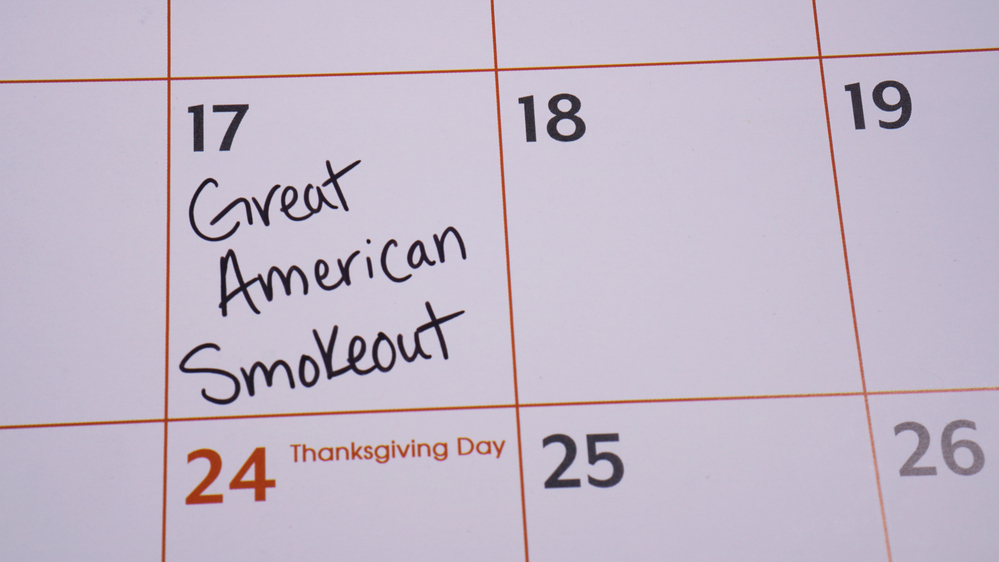This year it’s November 17
The American Cancer Society’s (ACS) annual Great American Smokeout (GASO) encourages Americans to quit smoking. Each year, the tobacco control program at Roswell Park Comprehensive Cancer Center (Roswell Park) partners with ACS and other agencies to help people quit using tobacco. “The most important thing smokers and vapers can do to improve their health is to quit smoking cigarettes and using other tobacco products,” says Martin Mahoney, MD, PhD, Roswell Park oncology professor and smoking cessation specialist.
Despite the devastating impact tobacco can have on people’s health, 34 million American adults still smoke cigarettes. It also remains the single largest preventable cause of death and illness in the world. In New York state, smoking kills about 22,000 adult smokers yearly. Another 650,000 New York adults are affected by serious smoking-related illnesses, including poor reproductive outcomes, cardiovascular disease, chronic obstructive pulmonary disease (COPD), and cancer.
The efforts of Roswell Park’s tobacco control program, health systems and organizations, and state and local legislation have led to reduced smoking rates among adults and youths, and a low rate of 12% in 2020 among adults, compared to the 15% US average. Among young adults, ages 18 to 24, the smoking rate is even lower (5.5%) among young adults ages 18 to 24. Despite these positive milestones, tobacco use remains a significant public health problem. Nearly 1.7 million adults throughout the state still smoke, and adults with poor mental health, less than a high school education, or annual incomes of less than $25,000, smoke at much higher rates than the general adult population.
The good news is that regardless of your age or how long you’ve been smoking, quitting has immediate benefits. Soon after quitting, your heart rate decreases and blood nicotine level drops to zero. Within a couple of months, coughing and shortness of breath decreases, and within one to two years heart attack risk drops sharply. “We know that addiction to nicotine in cigarettes is one of the strongest and deadliest addictions a person can have. It starts with a commitment to quitting and having a plan, often takes more than one quit attempt, and requires a lot of support,” says Dr. Mahoney. That plan can be discussed with your primary care clinician or with New York State Smokers Quitline cessation experts. Health care providers can also help by advising their tobacco-using patients to quit, assisting with their quit attempt, providing behavioral modification support, and prescribing cessation medications.
For those who want to quit, support is available through the New York State Smokers’ Quitline, a confidential service for residents of all ages who want to quit using tobacco and/or e-cigarettes. Free resources include educational materials, individualized coaching, experienced coaches, text and chat support, and free medications, such as nicotine patches or nicotine gum, for those 18 and older. Teens and young adults (ages 13-24) can text “DROPTHEVAPE” to 88709 to join “This Is Quitting,” a free support program for help quitting vaping. Learn more at www.nysmokefree.com or call 1-866-NY-QUITS (1-866-697-8487), open daily starting at 9 am.












